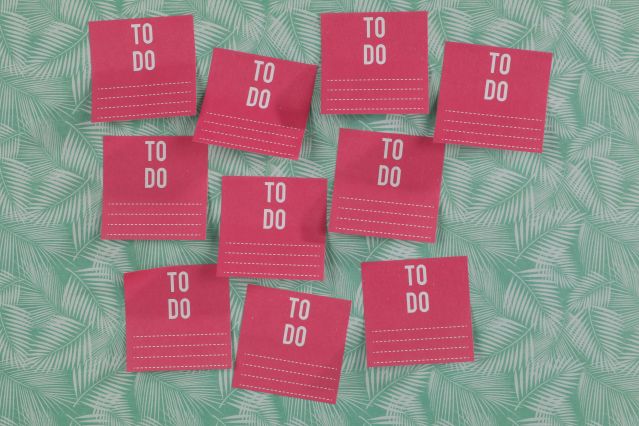
Ann H/ Pexels
In the relentless pace of today’s culture, it’s no joke—you’re not alone if you consistently find yourself stretched thin, skillfully juggling the demands of work or school, family, and friends, all while desperately clinging to the fraying edges of your sanity. How do you gracefully declare, “Enough!” without the echo of guilt reverberating through your relationships? It’s a tough balance to reach and one that undoubtedly needs to be repeatedly refined based on what life is currently dishing out.
First and foremost, it’s critical to understand your limits and capacities. Does your plate tend to get too full, leaving you perpetually exhausted or perhaps resentful? Maybe your self-care goes out the window, and you allow others’ needs to be the structural force behind your daily schedules and energy sources. This is a good indicator that you are neglecting to use past patterns as guides and check in with your feelings and motivators for making certain decisions along the way. A helpful framework is to identify at least three good reasons to say “yes” to something. Pay attention if your internal pleaser is rising up and playing the primary influencer in this exercise. Are you saying “yes” to avoid disappointing someone else or perhaps to avoid the discomfort that may occur if you set a boundary or explanation?
Setting boundaries is self-care, but taking this to the extreme and using it as a shield or something to hide behind is far from productive and does not fall within the realm of caring for yourself. Maintaining the relationships you care most about involves sacrifice at times, empathy, and compromise. It’s not all about you, but it’s also not about consistently accommodating and neglecting your needs and times needed for recovery. Explore the concept of healthy boundaries within relationships. This involves mutual respect for each other’s needs and an understanding that setting boundaries is a positive step for all involved. When you are in tune with yourself and better understand when you can push and when you need to set a limit, it helps you show up authentically to interactions and experiences.

Andrea Piacquadio/ Pexels
Introducing a new boundary or attempting to say “no” more can be intimidating and overwhelming. Remember to use “I” statements. This not only serves as a guide for keeping ownership of how you feel but also limits defensiveness and prevents others from falsely internalizing your request or boundary as something they did wrong or something they are not delivering. The fear of damaging the relationship or altering someone’s view often prevents you from communicating your needs or inserting a healthy boundary that decreases stress and feeling overwhelmed. When you are authentic and content with your decision to join in or opt out, you can shelve the internal conflict and access the ability to remain present and soak up what life currently has to offer.
Saying “No”
- When saying “no,” be clear and respectful in your communication. Don’t give in to the temptation to over explain yourself. This tends to trigger anxieties and insecurities and perhaps conveys a message that doesn’t align with the one that you are attempting to communicate.
- Let’s face it; this practice can be really uncomfortable. It is a skill that requires reps and practice. You will improve and gain confidence. Remember that the first step involves checking in with yourself and honing in on your tendencies and decisions that lead to stress and overcommitting.
- Acknowledge your current situation, goals, and limits. There are times in life that require more of our attention and this needs to be honored. Setting limits and boundaries allows you to direct your attention where it is needed most. Be mindful and avoid over-compromising and accommodating others while you are trying to navigate a big life change, grief, or hardship.
- Learn to prioritize your values, goals, and priorities. Establishing boundaries around these non-negotiables is key for building trust with yourself and maintaining your mental health.
- Listen to your intuition; don’t allow the pleaser to take over. Those “warning” flags are there for a reason. Don’t disregard and brush them aside to please others or avoid conflict. This tends to only create bigger messes to clean up in the end.
- Set boundaries early on; don’t flake out. Consistently canceling at the last minute? This is a great indicator that you are pushing your limits and harming your relationships in the process.
Navigating the Guilt
- Seek support by talking to friends, family, or a trusted confidant about your feelings. Sometimes, sharing your thoughts and receiving support can provide a fresh perspective and alleviate guilt.
- Shift your mindset from guilt to self-care or empowerment.
- Learn from experience and refer to your past and the overwhelming feelings you’ve had. Acknowledging your patterns and tendencies as tools for growth will help prevent you from fueling the same cycles.
- Be clear in your communication. Challenge irrational thoughts that contribute to guilt. Question whether your guilt is based on realistic concerns or unfounded fears. Often, guilt can be rooted in self-critical thinking. Align with your inner critic and really put in the time to uncover what is driving it and sending it into overdrive. What is it ultimately trying to protect?
As you navigate the delicate balance of saying “no” and establishing healthy limits, remember that this practice is not about closing doors, but rather about opening yourself to more authentic connections and experiences.
